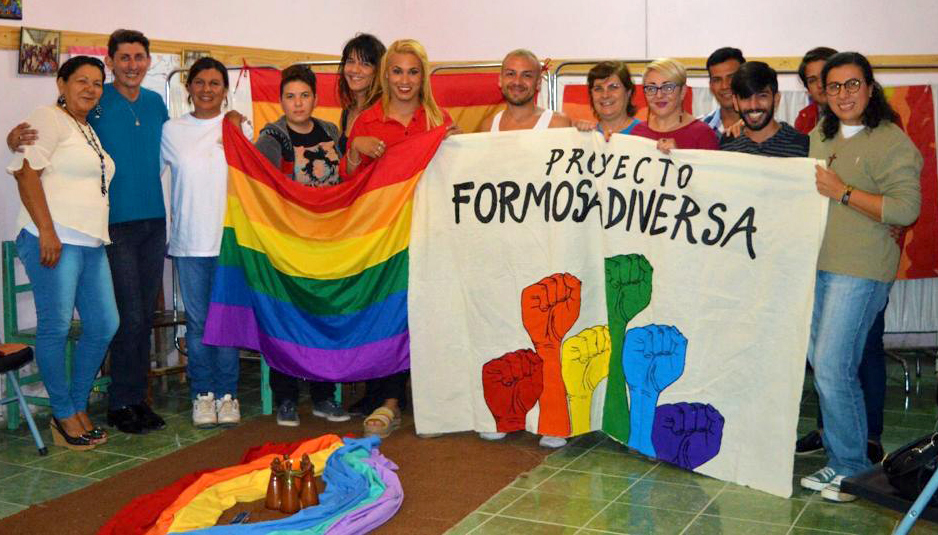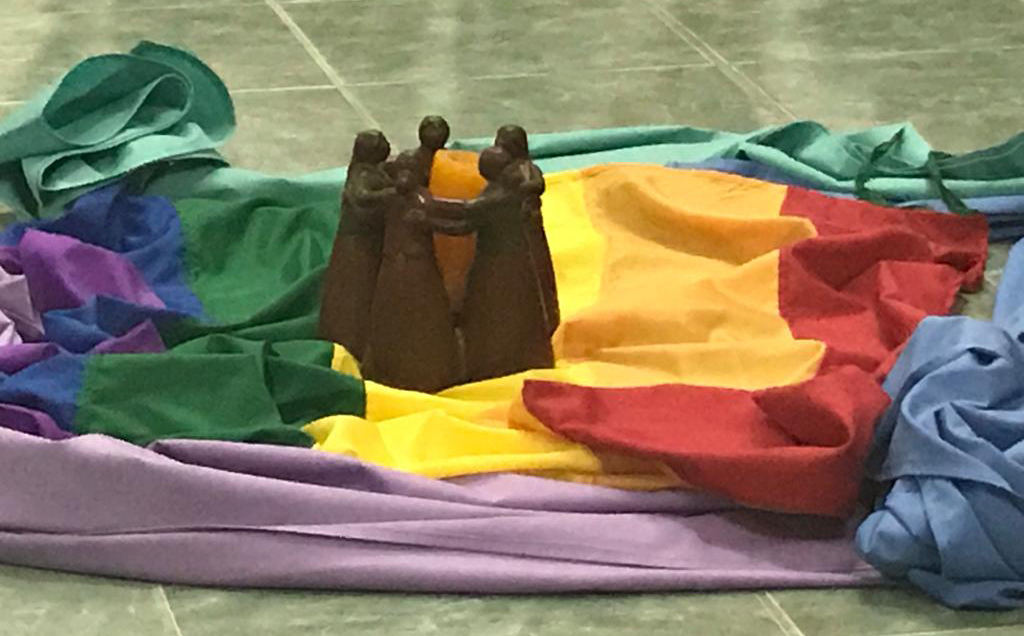By Sister Estela Gomez
This story is the fourth in a series about the Sisters of Mercy’s journey with the LGBTQ+ community.
“Centered in God and the Spirit of Catherine McAuley, what critical conversations and collective responses are we invited to explore now?”
We Sisters of Mercy are currently reflecting on this question as we prepare to gather in the spring for our next direction-setting meeting. At a similar meeting in 2017, we committed to engagement in education and dialogue around the subject of gender identity and sexual orientation. The question before us now invites us to consider the challenges more deeply, beyond what we’ve already been doing.

I feel that our lives and ministries are involved in bringing about social changes around the perception of gender identity and sexual orientation, since it has to do with our already existing commitment to social struggles for equal opportunities and greater dignity. The social movements help us to reach a deeper understanding of paths where God’s mercy must not be absent.
The deconstruction of internal patterns of behavior, images, ambiguous and contradictory norms in daily life, often racist and sexist, is without a doubt, a slow process for all of us to engage in.
Through interrelationships, we can recognize the strength of Ruah that is active in the identity and sexuality of every human being and in the social movements that struggle for dignity, while simultaneously challenging our ways of bonding with others and their experiences of inclusion in our institutions and ministries.
We are called to accompany those who feel vulnerable as a result of expressing their identities and sexual orientations. I wonder, how can we creatively incorporate ways of integration and openness in the structures of our ministries, in light of this reality?

One key may be to listen empathically to the pain of those who suffer for who they are, looking to integrate and include new ways of relating that challenge us. That’s why it’s fundamental to deepen not only our education but also our process for moving forward personally and institutionally. In this way Mercy would be an active force in this reality and challenge others to bring about this inclusion in the church and the world.
Every human being is important, but love is even more important. Mercy is called to make itself present in these situations. Jesus and Catherine continue to invite us to acknowledge the richness of a diversity of identities.